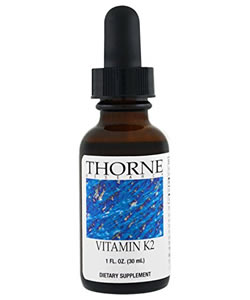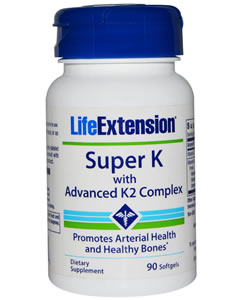I just cannot stay away from the heated discussions in the Internet concerning an important issue for future parents. Should the newborn be given a painful injection of vitamin K right in the maternity clinic? Is it worth to subject the child to such a test? Is there a more humane alternative? After all, their right decision affects the baby’s future happy childhood. There are a lot of articles and other sources on the Internet and all data are mixed. I will try to touch on all aspects of vitamin K and offer the more relaxed solution that does not hurt the child.
Why do they make an injection of vitamin K immediately after birth?
Both children and adults need vitamin K as it provides normal blood clotting ability. Some children (recently more and more) are born with a low level of this vitamin because of the immaturity of the liver and gastrointestinal tract, where vitamin K is synthesized. While prenatal, a child cannot receive vitamin K because it is not absorbed through the placenta. There is very little of vitamin K in maternal milk, as well.
It can cause bleeding, i. e. hemolytic disease of the newborn (HDN). Internal bleeding in the brain and other organs can lead to serious damage, sometimes even death.
In spite of the fact that we rare face this disease (from 0.25 % to 1.7 %), vitamin K is injected intramuscularly to every newborn as a precaution.
I will list the factors of an increased risk of HDN (any item is enough to think that the child is at risk):
- premature babies, low birth weight,
- forceps or vacuum extraction delivery,
- caesarean section (the microflora of the child remains sterile after such a birth),
- very fast or long delivery, especially in the second stage of labor (expulsion of the fetus),
- mother’s taking antibiotics, anticoagulants, anticonvulsants during pregnancy, especially in the first trimester,
- undetected liver disease, liver load after hepatitis B vaccination,
- drug release to a newborn for any reason.
Unfortunately, these standards for HDN and vitamin K have been put into practice without proper study of what is better for the newborns. This approach was, as usual, convenient for physicians but did not take into account any evaluation of side effects for children.
Fortunately, new research shows that there are safer and more effective methods that will just as well protect your baby from HDN.
Side effects of injection, which you are not warned about
There are five main risk areas associated with this injection:
- Pain infliction immediately after birth leads to a possible emotional trauma, which a defenseless and innocent child will have to overcome in order to become healthy.
- The amount of vitamin K injected to a newborn is 20,000 times more than the required dose. In addition, the injection contains preservatives that are toxic to the immature immune system of the baby.
- Synthetic analogs of vitamin K are used for injection: Kanavit (K1 as phytomenadione) or a cheaper option — Vicasol (K3 as menadione). They are causing a lot of serious side effects.
Many forms of vitamin K are similar in chemical composition and action on the body (from vitamin K1 to K7). The two main forms that exist in nature are of the greatest interest: vitamin K1 and K2.
Vitamin K1 is a substance that is produced in plants and contained in leaves. Vitamin K2 is a substance that is synthesized in a human body by microorganisms (saprophytic bacteria) in the small intestine, as well as by animal liver cells.
So, in Ukraine and Russia, there are NO pharmaceutical drugs containing natural vitamin K1 (as phylloquinone or phytonadione). They are not produced or imported. Only the natural form of vitamin K is safe for newborns since it is not toxic even at high doses. - Large doses of synthetic vitamin K are the cause of neonatal jaundice. (The data are taken from English sources because our official medicine does not confirm this, though the side effects in our children evidence the opposite.)
- For a weak and immature immune system of the baby, the injection creates an additional risk of infection from the environment where there are dangerous pathogens of infections.
Simple solutions to replace the injection of vitamin K
Option № 1
According to the best vitamin K expert in the world, Dr. S. Vermeer, associate professor of the department of biochemistry of the University of Maastricht (Netherlands), there are safer and non-invasive methods (not violating natural covers) to replenish the level of vitamin K in a newborn. This is an oral intake of natural vitamin K, which eliminates overdose and reduces the risk of bleeding and jaundice, as well as reduces pain at the injection site and the effects of harmful preservatives. In this case, vitamin K is absorbed through the intestine, as it is intended.
Where can you buy the natural form of vitamin K? Since my blog is dedicated to health and organic product reviews from the American store iHerb, I will share the information with great pleasure. Still, the choice is, of course, yours.
 Thorne Research, Vitamin K2, 1 fl oz (30 ml)
Thorne Research, Vitamin K2, 1 fl oz (30 ml)
This product contains the natural form of Vitamin K2, which has an even greater bioavailability than vitamin K1. Vitamin K2 is a series of molecules known as menaquinones. The most common and studied menaquinone is MK-4. Our vitamin K2 is MK-4 and we get it by bacterial fermentation.
Other Ingredients: medium-chain triglyceride oil and mixed tocopherols.
Take it according to the following scheme: 2 mg of vitamin K at birth and 1 mg per week orally for the first 3 months of life or 0.25 mg daily.
Liquid Vitamin K2 from Thorne provides 1 mg of vitamin K2 in each drop.
If the child vomits within an hour after an oral medication then you should repeat the dose.
One of the difficulties of taking vitamin K this way is to meet a schedule within 3 months. The fact is that repeated doses reduce further risk of late HDN, to which even healthy children with perfect labor are subjected.
Pure Vitamin K2 from Thorne Research is certainly not cheap. So, I suppose considering another interesting product from the same manufacturer Thorne Research, vitamin D / K2, 30 ml.
As part of vitamin, K2 is combined with the vitamin D, while both reinforcing the effect of each other. This duo effectively protects important systems of the body: bones, immune and cardiovascular systems. In addition, Vitamin D is prescribed to children from birth to prevent rickets, especially in fall and winter.
However, there is a significant drawback. This is an unbalanced dosage for our case. One drop contains 250 % of vitamin D from daily value and 0.2 mg of vitamin K. So, you need to give half a drop every day, or one every other day. And it’s better to consult with your pediatrician.
Option № 2
If you’re going to breastfeed you can increase the level of vitamin K in your baby’s body, while increasing your own.
In most cases, the milk of lactating women does not contain enough vitamin K as women themselves experience a lack of it. If they take vitamin K additionally, then its amount in milk increases.
According to Dr. Vermeer, lactating mothers who get enough vitamin K, do NOT need to give it to their babies additionally. With the condition that you are completely confident in your own level of this vitamin. For instance, for many women, vitamin K, obtained only from food, is not enough, especially in the cold period. So, you cannot do without an additive.
 Life Extension, Super K With Advanced K2 Complex, 90 Softgel
Life Extension, Super K With Advanced K2 Complex, 90 Softgel
To prevent bleeding in newborns, pregnant women should begin taking this complex from the last month of pregnancy and up to 3 months of the baby’s life.
The advantage of the product is the newest formula of vitamin K, which includes a complex of its various forms: vitamin K1 (like Phytonadione), vitamin K2 in the form of MK-4 (like menaquinone-4) and in the form of MK-7 (like menaquinone-7).
MK-4 is the most rapidly absorbed and it increases the level of vitamin K very fast but remains active in the blood only for several hours. MK-7 remains bioavailable for the human body for 24 hours and longer with prolonged admission. Both MK-4 and MK-7 demonstrated remarkable health benefits according to recent studies in humans.
Other ingredients: Olive oil, glycerin, gelatin, purified water, beeswax, and carob (flowers). There is no: sugar, salt, gluten, milk, wheat, and preservatives.
Method of administration: one gel capsule per day with meals.
There is another interesting complex from Jarrow Formulas with vitamins K2, D3 + calcium and magnesium in digestible forms. It is specifically designed to treat osteoporosis, fractures, etc. Pregnant and lactating women need such a complex for the third trimester especially. Packages will last for 2–3 months.
Although these decisions may seem simple, in any case, you’d better discuss these options with a sensible and thinking doctor. You have every right to refuse the injection and document the oral intake of vitamin K, having informed your team of doctors that will perform the delivery. Usually, hospitals are accustomed to the standard protocol procedure, and they may find it difficult to act some other way. So, you will have to show firmness and perseverance. The system will struggle with you not for life but for death, as its representatives are sincerely convinced that they know everything better.
Believe me, it is worth it because you will additionally protect your newborn from the multiple consequences of the injection of vitamin K.









